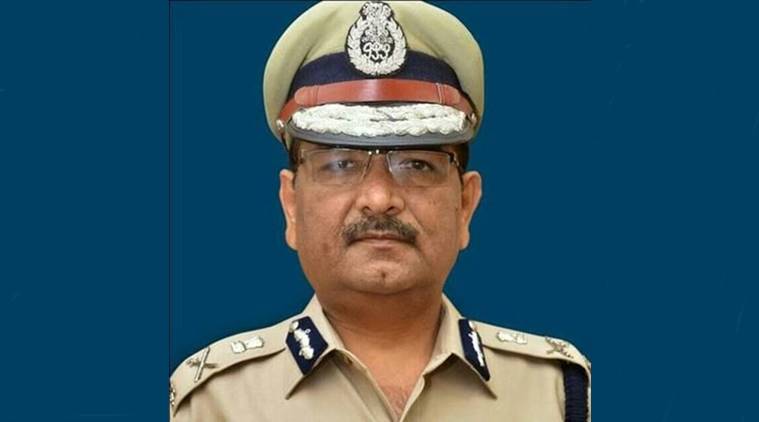
FACING criticism for his Traffic Sentinel Scheme, which allows citizens to report traffic offenders, Goa DGP Muktesh Chander has one question, “Is helmet necessary? If it is, then how does it matter if a traffic sentinel or a traffic constable reports the offence?”
In an appeal to Goans during a Road Safety Presentation on Tuesday, Chander even compared himself to Italian scientist Galileo Galilei, whose theory of a round earth was not believed initially.
“For the first time in the history of Goa, police is getting serious. We are going behind those who ride without helmet. You may not believe it now, but we are telling you a basic truth. Riding without helmet kills,” Chander said, adding, “Here in Goa, implementing traffic rules has seen major uproar and protest and we are struggling.
Tourism industry stakeholders have said the scheme is detrimental to the sector, and local residents have been protesting against the “sentinels” intruding their privacy. Both ruling and opposition MLAs have said the scheme can be misused.
Chander argued, “I have data backing me. In 2018, 71 fewer deaths have been reported due to wearing helmets.” He said the main opposition is from those who got notices at home for riding without a helmet. “No single photograph can be ignored. We have to send a notice. Goans say they were going on ‘small journeys’, to the neighbour to say hello, to the Church, to the temple. Then there are tourists who will follow rules elsewhere but not in Goa.”
Chander’s data is crucial. In Goa, against 31 homicide deaths, 333 deaths were due to road accidents. “We went behind the numbers. Analysing each death. We compartmentalised the numbers to two boxes: Who is dying,? Who is killing?” Against a 13.90 per cent annual growth rate of vehicles, of the 14,10,882 vehicles, 68 per cent are two-wheelers, with an understaffed police force manning a road length of 5,042 km.”
“Overall, 71 less number of deaths have happened in 2018 because of the traffic sentinel scheme,” said Chander.
Chander added, “There is no law which says tourists are allowed all violations in Goa. He is also supposed to observe traffic laws. But the moment we start implementing this in a serious way, the whole tourism appears to have collapsed on our head.”
Chander also said that he is willing for an interaction on the issue with the Goans.
“In 2017, 70 per cent of the deaths were of those who were on two-wheelers, with over 70 per cent of the killers and and 50 percent of the dead involving bikers. We went heavily behind the two wheelers, and in 2018, our data shows 21 per cent reduction in deaths in 2018 as compared to 2017. Against 193 deaths of helmetless riders, 2018 saw 145 deaths. Against 93 pillion riders without helmet, 37 helmetless pillion riders died in 2018. Of the total 248 vehicles involved in fatal accidents, 138 were bikes, with 182 victims. And 107 of those who died were killed after their heads were smashed.
“Overall, 71 fewer deaths happened in 2018 because of the traffic sentinel scheme,” said Chander.
With traffic department showing a total of 6,500 registered sentinels, the department receives “around 800 to 1200 photographs every single day” through social media. “More than 70 lakh rupees are due in reward, and the government is in process of disbursal,” said Chander, adding, “Those who are most vociferous against the scheme are those caught for riding without helmet. They say Rs 100 is too much to pay. Either save Rs 100, or save your head. If there is any apprehension against the scheme, we can listen, we can modify, we can remove deficiencies. But this whole uproar against the entire scheme is unprecedented. But we are prepared as anything that is going to be enforced for the first time will see protest.” In 2018, 7,96,110 cases were booked, with the traffic sentinel- backed policing leading to a fine collection of Rs 10,08,31,900.
“In Europe, during my peacekeeping mission days in the 90s, I used to drive everywhere. Unlike here, the roads are constantly talking to you. Guiding you with rules, signages and instructions. None of those protesting will be able to argue. I can say that as even I failed the tests initially there. The concepts abroad are different. Life is given priority,” he recalls. “In Delhi too, traffic rules saw protests initially but are respected. There our analysis showed 40 per cent of the deaths were of those involving pedestrians. We then started proposing policy changes to change that. Here, it is bikes, as its a tourist state. Tourists too behave differently here. We understand the idea of vacation, but if you wear a helmet, your chances of being alive increases by three times.” In 2018, 21 tourists have died on road, of which 5 are foreigners.
On Tuesday, at the presentation, Chander had said, “There is no law which says tourists are allowed all violations in Goa. He is also supposed to observe traffic laws. But the moment we start implementing this in a serious way, the whole tourism appears to have collapsed on our head. That we are responsible for the collapse of tourism.”